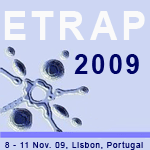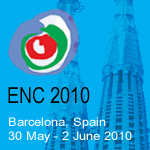
The Young Generation Network’s perspective of the Garoña NNP issue
On June 3, Spain's nuclear safety regulatory body, CSN, declared unanimously that the Santa María de Garoña nuclear power plant, a BWR reactor, was “entirely compliant” with all the safety requirements needed to allow an extension of its operational lifetime to cover the period the 2009-2019 period. According to Spanish regulations, approval by the CSN is mandatory for the operation of any nuclear power plant. The CSN’s Resolution was announced after a careful and thorough evaluation process in which the daily operation of the nuclear power plant was analysed by a body of independent experts and technicians. Getting this approval is the main precondition for maintaining the operation of the power plant, but it is also necessary for the Ministry of Industry and the Spanish government to grant permission too.
The controversy surrounding Garoña has intensified due to the fact that the present government and, in particular, its President, has openly declared its desire to progressively shut down nuclear reactors in Spain. It wants, by so doing, to redraw Spain’s electricity generation map and place the main burden for energy production on the shoulders of renewable resources, a claim that has been highly disputed by experts and that has been considered as simply unfeasible by many.
The government has made no official statement yet, but President Zapatero has previously mentioned his preference for not renewing Garoña’s license once its forecasted lifespan of 40 years has come to an end. This decision will necessarily be connected to a previous decision made with regards to similar reactors in the US. However, in the US the outcome has been quite different, with more than 52 reactors having been granted life extensions and recently, the Oyster Creeek NPP, with an identical design to that of the Garoña NPP, was granted a lifetime extension up to 60 years. Indeed, more than 93% of the comparable reactors have obtained renewal licenses.
Maintaining Garoña NPP in operation for a further 10-year period would mean the extra production of more than 39,000 million CO2-free KWh of electricity. This would prevent the emission of more than 25,000 million tonnes of CO2. The NPP would provide the grid with a steady, reliable and low-cost production of electricity that could mean 1,600 millions € in energy savings from fossil fuels purchases.
Today Spain is one of the most energy-dependent countries in the world and is the European country that is furthest away from achieving its CO2 emissions reduction target.
The deadline for deciding on the fate of Garoña expires on July, 5. The Spanish government will have to decide soon, therefore, and in the midst of a deep economic crisis.
To face this scenario, the Spanish Young Generation Network recommends that the electricity supply be assured in the most secure way possible, at a reasonable and a stable cost. In other words by using nuclear energy. Furthermore, we believe that this would help make Spain as independent as possible of fossil fuel price hikes, thereby minimising its energy dependency. Such action would also help avoid a maximum amount of greenhouse gas emissions, thus enabling the effective management of waste resulting from electricity generation and – thanks to safe facilities - producing a positive economic and social impact in the neighbouring areas. We should not, therefore, reject any kind of energy resource.
Spanish Young Generation Network
|





